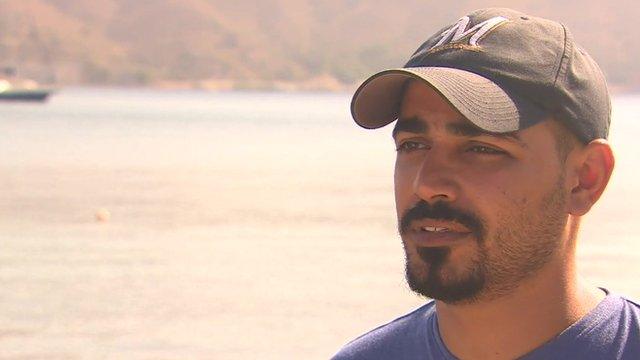Migrant crisis on Greek islands eclipses election
- Published
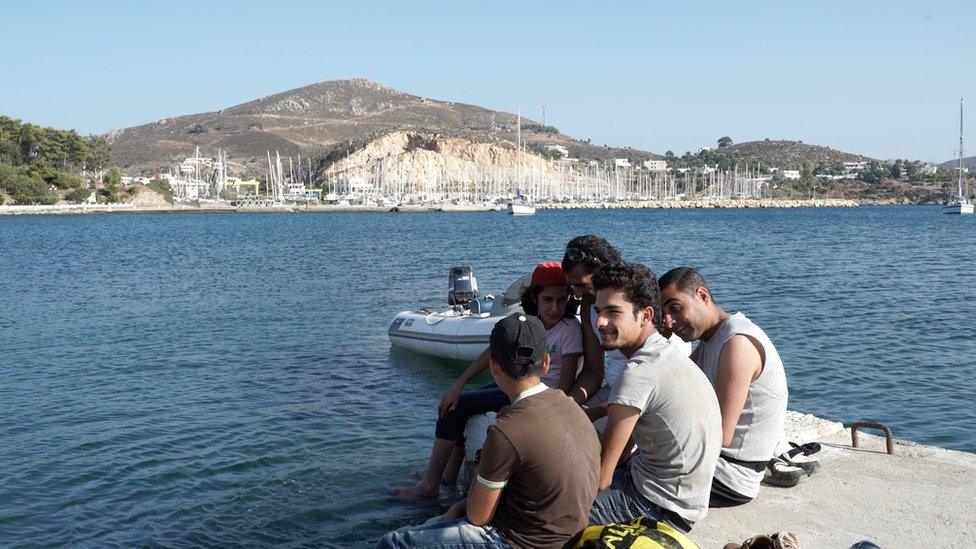
New arrivals have often had to stay in squalid, make-shift camps on Leros
All through the summer and now into the autumn, thousands of refugees and migrants have been arriving on the small tourist island of Leros in the eastern Aegean close to Turkey.
The large numbers have sparked such a profound crisis that the local mayor threatened this week to stop voters taking part in Sunday's general election unless he received more help from the government in Athens.
At the peak in August and early September, up to 1,500 Syrians, Iraqis and Afghans were arriving every day, according to local officials. The total population of Leros is just 8,500.
It was at that time that left-wing Syriza leader Alexis Tsipras resigned as prime minister and a caretaker administration took over.
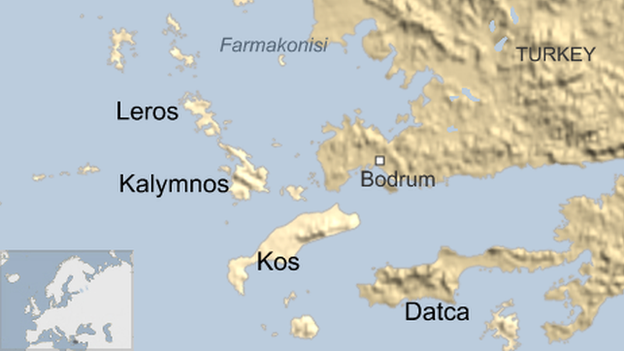
Squalid makeshift camps have been set up to accommodate the new arrivals on the island. Earlier this week several hotels were commandeered to look after survivors from a boat which sank nearby, killing at least 34 people.
Smugglers deliberately holed boat, says Greek island survivor
Residents of Leros talk about the arrival of thousands of refugees and migrants on the island
For the people of Leros and many of the other Dodecanese islands lying close to Turkey, the refugee and migrant crisis has not only become the top election issue - it is eclipsing everything.
"Right now it's the only thing on our minds," says the deputy mayor of Leros, Yiannis Konstantinides.
"We haven't even realised that this Sunday we have elections. We're all preoccupied with this problem and nothing else."
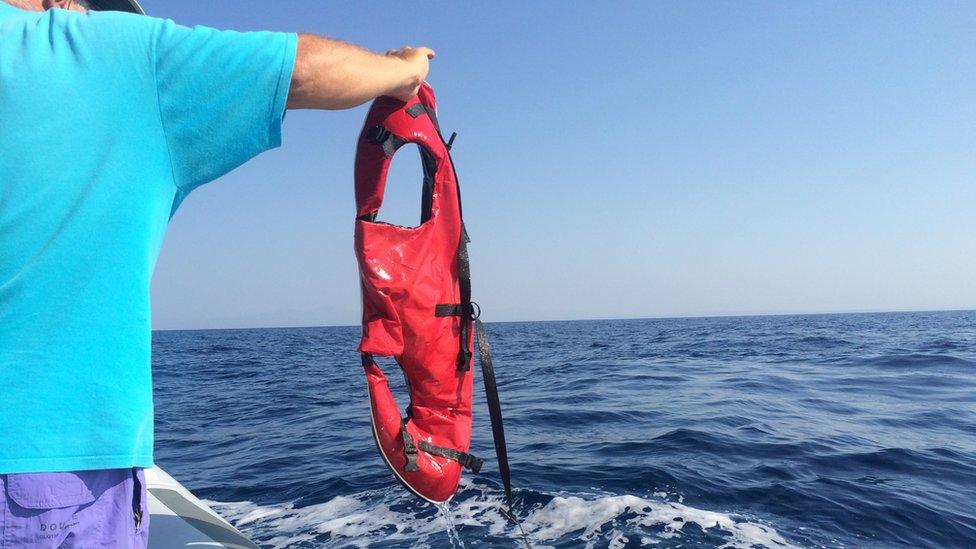
At least 14 Iraqi and Syrian children, including a baby, were among those who drowned near Leros this week
The mayor's threat to boycott the election on Leros prompted officials in Athens to provide the island with some help.
The caretaker government has now sent extra ships to the island to transport many of the refugees and migrants to the capital.
"The present government, even though it's temporary, shows a much greater interest than the previous government and is much more attentive to us," says deputy mayor Yiannis Konstantinides.
"We'd been trying to get the previous government to act for three months, but they would not listen."
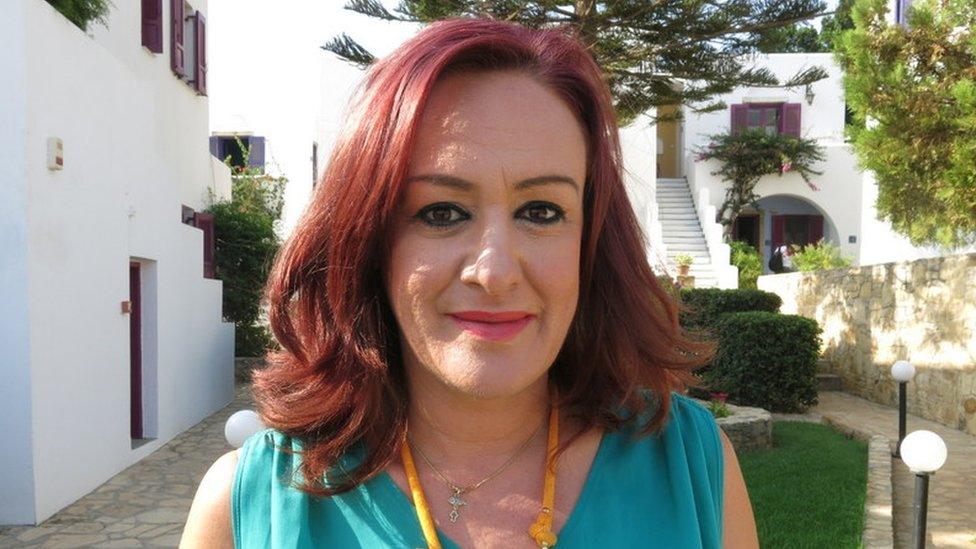
Hotelier Eva Gkeka fears the crisis will cripple the island's tourist industry
The business community on Leros has also been voicing concerns about the influx of migrants and the need for any new government emerging from Sunday's election to focus immediately on finding an overall solution.
This region, like much of Greece, depends on tourism and there are fears that if the local authorities continue to be overwhelmed by the arrival of migrants, it will undermine the industry.
"Already now, big tour operators are pushing us to keep our prices very low," says Eva Gkeka, who owns hotels on Leros and the island of Lipsi.
"We are at the beginning of the (migrant) crisis and we don't know what will happen next year in the Mediterranean."
"We have to do something, reservations are going to go down."
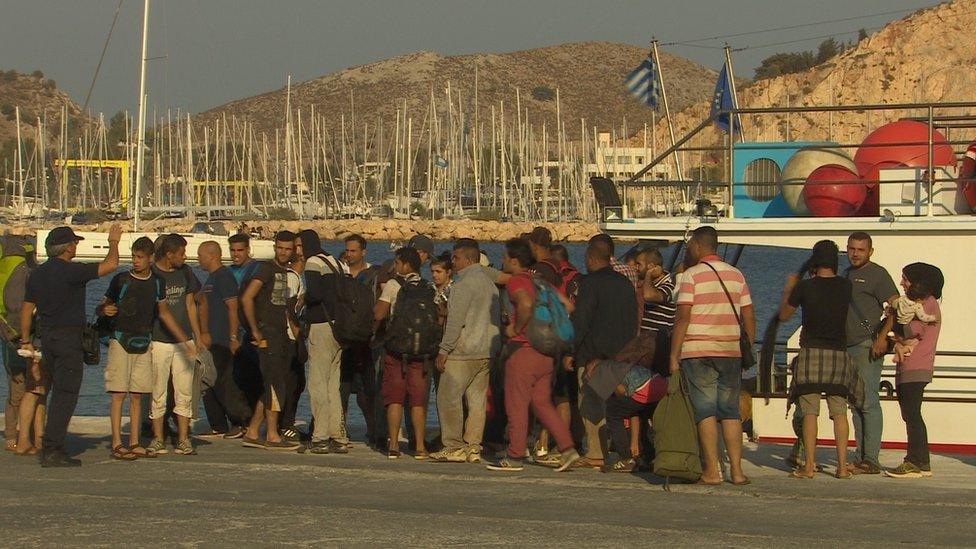
Earlier this month as many as 1,500 migrants were arriving on Leros every day
Far right
It is estimated that at least 250,000 refugees and migrants have arrived in Greece so far this year, six times more than during the whole of 2014.
This has become a key issue in election campaigning across the country, with conservative opposition party New Democracy accusing the former Syriza-led government of having an open-door policy.
The refugee crisis has also injected new life into the far-right Golden Dawn party, whose leaders are on trial on a range of serious charges.
Opinion polls indicate Golden Dawn could win between 6% and 7% of the vote despite despite its leaders spending months in pre-trial detention.
Campaigning both on an anti-immigrant ticket and on its opposition to Alexis Tsipras's bailout deal with the European Union could see the far-right party make big political gains.
- Published14 September 2015
